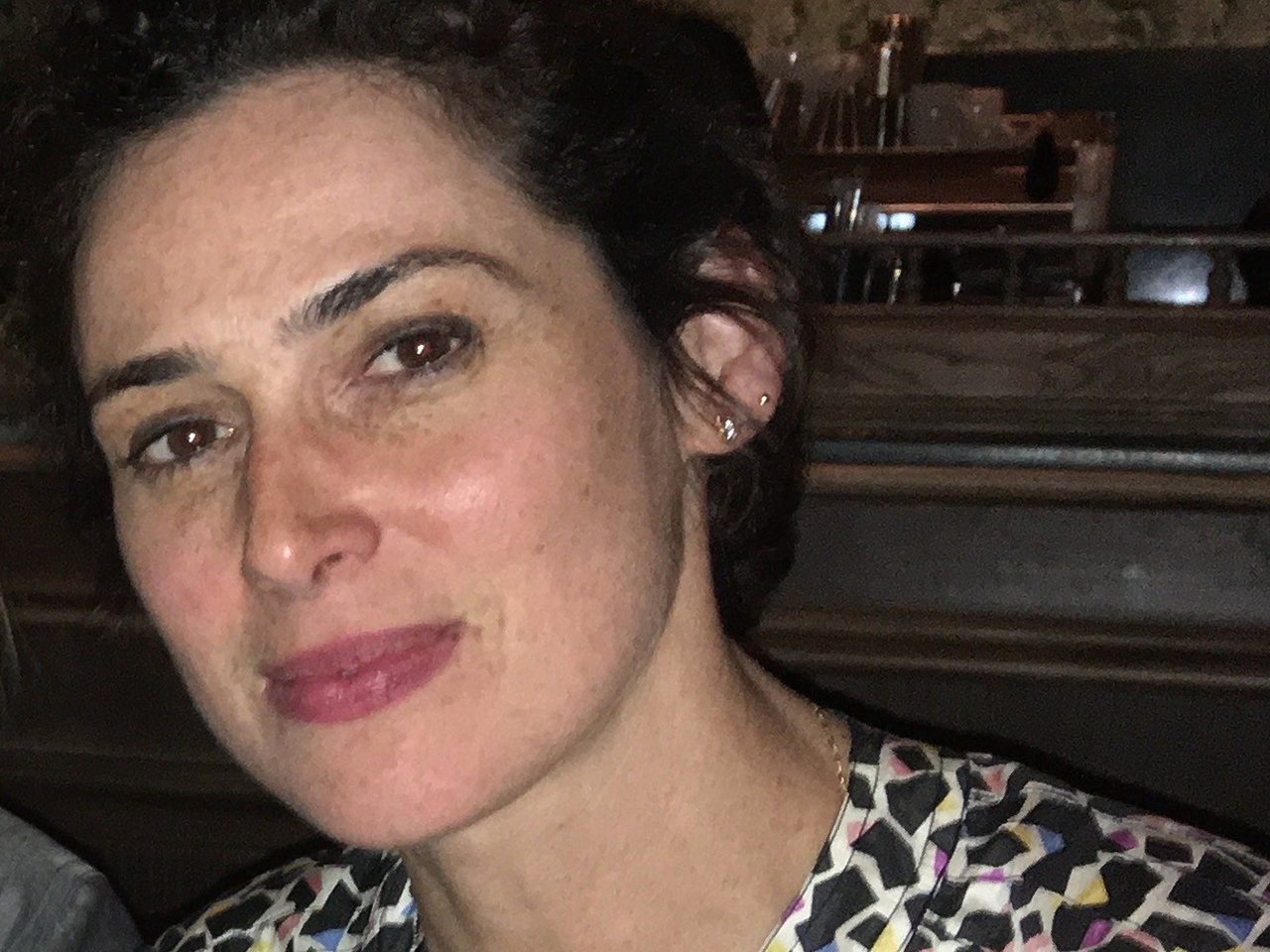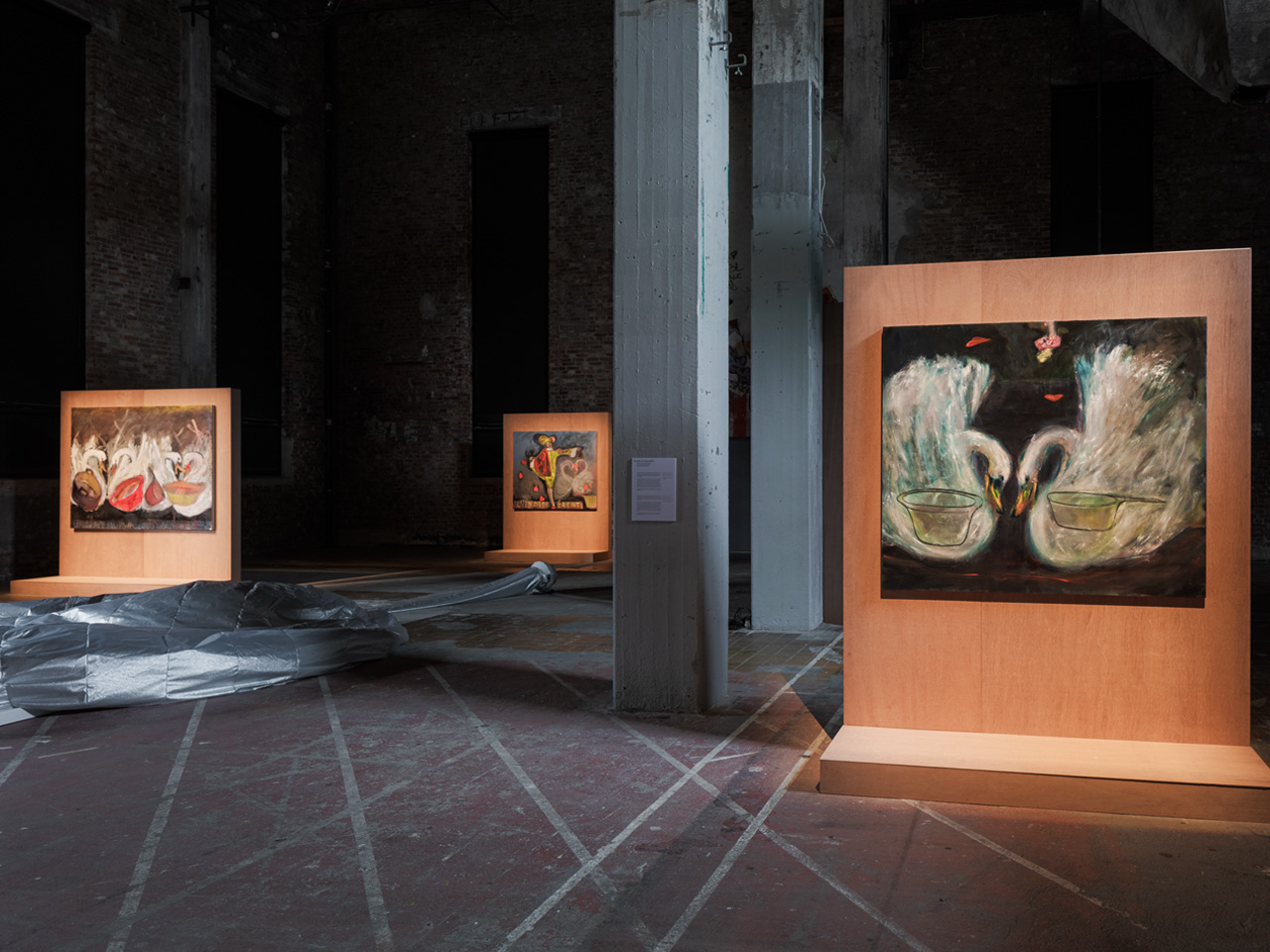Rosalind Nashashibi
Rosalind Nashashibi (b. 1973, UK) is a Northern Irish / Palestinian artist working both with painting and film. She is preoccupied with looking, and her films chronicle intimate moments of contemporary life with a deeply empathetic and personal approach. In Nashashibi’s painting, sentimental or overbearing motifs such as a pair of swans or a X, intrigue us into looking at them anew, and her references to historical paintings are dives into the past to bring back new ways of looking at today.
Nashashibi received her BA in Painting from Sheffield Hallam University, and her MFA from the Glasgow School of Art. She was a Turner Prize nominee in 2017, and her work has been included in: documenta 14; the 52nd Venice Biennale; Manifesta 7, Trentino; 10th Nordic Triennial; 10th Sharjah Biennial. Nashashibi has had exhibitions at venues including Den Frie Centre of Contemporary Art, Copenhagen; Carré d’Art – Musée Art Contemporain, Nîmes; Radvila Palace Museum of Art for CAC, Vilnius; Vienna Secession; S.M.A.K., Ghent; The High Line, New York; Tate Britain, London; The Art Institute of Chicago; and ICA, London.
Swans and Pots (slipper)
2024
Oil and charcoal on linen, 130 × 150 cm
Swans and pots (four)
2024
Pigment, oil and charcoal on paper mounted on linen, stretched, 149 × 201 cm
The Indifferent Man
2024
Oil and charcoal on linen, 130 × 150 cm
Courtesy of the artist and Grimm Gallery
The Indifferent Man, inspired by Antoine Watteau’s L’Indifférent (c.1716), reimagines the carefree and detached Rococo figure in today’s world, where historical awareness and social responsibility are urgent. The painting raises pressing questions: Can we afford to be indifferent? Is indifference a form of complicity?
The work is exhibited alongside paintings from the Swans and Pots series, in which the letters UNRWA appear. UNRWA, The United Nations Relief and Works Agency, was established in 1949 to register and support Palestinian refugees. The lettering anchors the image to Gaza, where children wait with empty pots in line at UNRWA stations due to Israel blocking food from entering the strip. The blockade and Israel’s expulsion of UNRWA have caused widespread starvation in 2025. The contrast of aesthetic beauty with stark human suffering confronts viewers with the tension between the knowledge of genocide and the roles assumed from a position of safety and distance.


